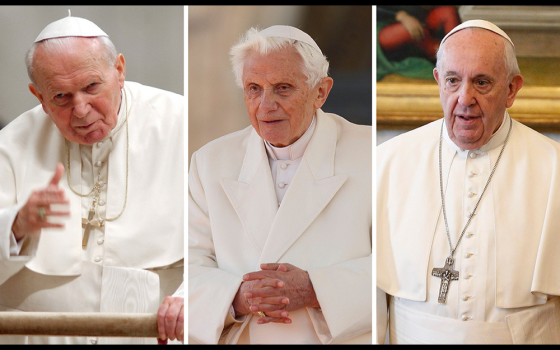The recent showdown over extending the payroll tax cut may have worked out alright for President Obama: He forced congressional Republicans into the awkward position of appearing willing to fight to the death to preserve tax cuts for millionaires but indifferent to the extension of tax cuts for the middle class. This is not a good place to be at the start of an election year and the GOP leadership caved. It was acclaimed as a big political win for the White House. In the event, the Congress could only agree to a two month extension so the debate will be back in February.
The entire debate sent shivers down my spine. Not because I feared the President would blink. But, because the payroll tax cut is the kind of idea an economist devises – it is efficient, it pumps money into the economy, etc. – but also an idea that may have ugly political consequences down the road. It will be very, very hard to end that tax cut in the years ahead and it is the payroll tax that funds Social Security.
There is much to loathe about the payroll tax, or FICA, that funds Social Security. It is regressive in the extreme. It is not applied to income generated by investments, only wages, and it is only applied to the first $100k of wages (approximately). After that, no FICA tax. Ergo, a person making $100k and a person making $500k in wages pay the exact same amount. People who live off their investment income do not pay the tax at all. And, the benefits from Social Security are not means-tested: You get you Social Security check whether you need it or not.
When Franklin Roosevelt introduced Social Security, he set it up this way for a simple political reason: If Social Security were universal, it would be impregnable. If it were only directed to provide relief to the impoverished elderly, it could be cut. Roosevelt may not have been a fine economist, but he was a shrewd politician. It was this insight about making Social Security a universal entitlement that turned the program into a Third Rail of American politics, something untouchable. Of course, it was never really universal: For example, sharecroppers were not included at first because FDR needed the votes of southern Senators to pass the law. And, over the years, politicians would increase benefits in ways that undermined the fiscal stability of the system. Nonetheless, if there is one thing you can be sure about in U.S. politics, it is that going after Social Security is a losing proposition.
What worried me about the payroll tax cut negotiations is that it opens the possibility of people seeing Social Security not as the untouchable program, distinct from normal government expenditures and budgetary processes, but as one more subject for fiscal debate. The Washington Post had a fine article about this last Friday. Jia Lynn Yang, the Post’s reporter, writes: “The prospect of policymakers continually turning to the payroll tax as a way of providing economic stimulus troubles experts, some lawmakers and both public trustees of the Social Security trust fund. Their concern: that Social Security will lose its status as a protected benefit owed to every working American and instead become politically vulnerable, just like any other government program.”
In order to avoid this, President Obama needs to harken back to the language and the logic he employed as a candidate, to the kind of explicitly moral, even religious language, about how we are bound to one another. In the final analysis, “Social Security” is a phrase with a meaning. It is about the security of our society, the moral security of our society. We live in a free country, with a free market, and we can all celebrate the successes such freedom yields. But, whether you succeed in your line of work, whether you successfully save for your retirement or not, whether your IRA tanks or it doesn’t, Social Security embodies the proposition that any U.S. citizens who work their whole adult lives are entitled, yes entitled, to live out their golden years without the specter of poverty. Their human dignity demands no less. They have contributed to our society by the labor and we shall, as a society, protect them from the ravages of poverty in their twilight years.
I am ambivalent about Rachel Maddow, an MSNBC host, but she has a short ad running that makes the point that amidst all the dire economic news of the past three years, especially regarding the increased rate of poverty, one of the pieces of good news is that there is very little poverty among the elderly. That is because of Social Security. As Maddow notes, Social Security is not a ponzi scheme as Texas Gov. Rick Perry has suggested. It is not broken. It is the most effective anti-poverty program in the nation’s history. We should celebrate it. And, we should protect it.
In 1997, President Bill Clinton entered into negotiations with congressional Republicans. He wanted them to endorse his lifetime learning tax credits and Hope scholarships. In exchange, they demanded that the tax on capital gains be lowered from 28% to 20%. It seemed like a fair trade at the time, but in fact, a large part of our fiscal problems have stemmed from the fact that we now treat one kind of income, capital gains, so differently from the way we treat other forms of income. I cannot think of a single provision of the tax code in the past twenty years that has done more to widen the disparity between rich and poor in this country. It was Bill Clinton’s biggest mistake. I fear greatly that trying to pump some energy into the economy via the payroll tax cut might have a similar effect.
There is no doubt that Social Security and especially Medicaid and Medicare will become the subject of intense political debate in the years ahead. I cannot think of any programs that better enflesh what we Catholics consider human dignity than these programs that say, no matter how old you are, how ill you are, how poor you are, how successful you are, we will not let you live out your later years in poverty and without health care. Social Security is a profound statement about human dignity. We need to make sure it never loses its status as a Third Rail.


